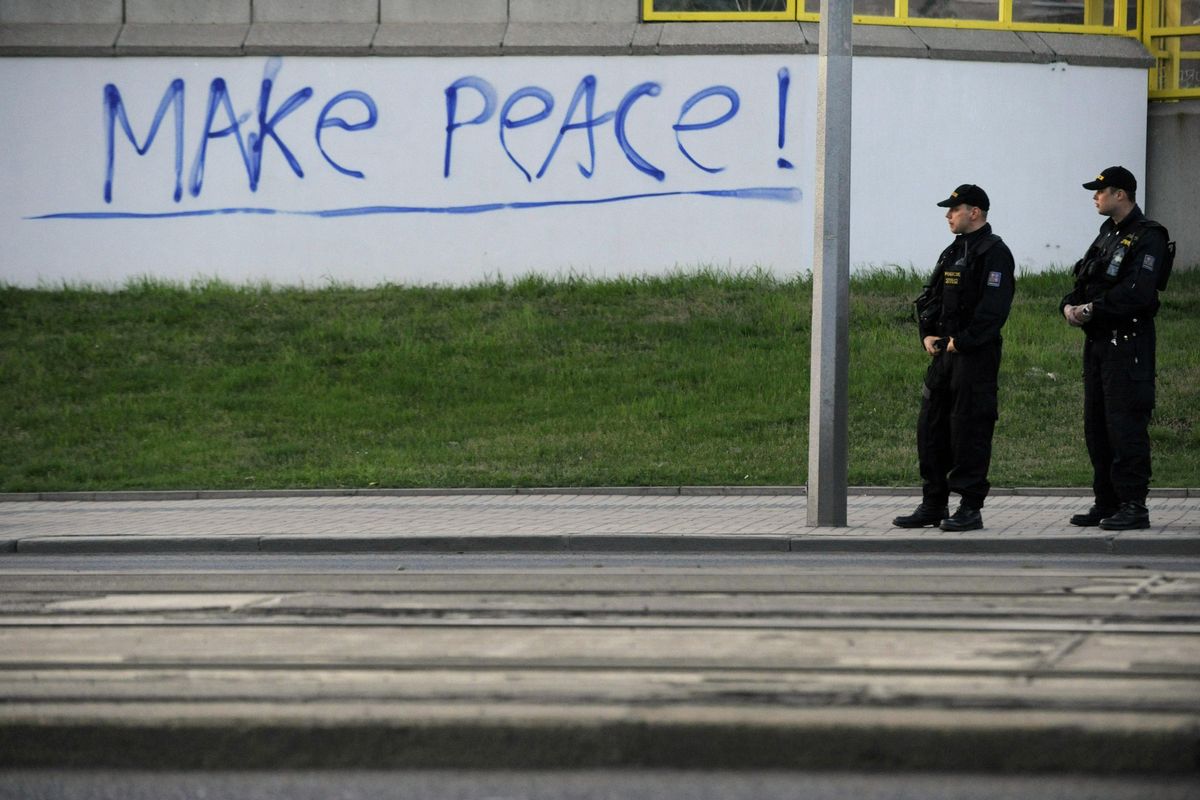U.S.-Russian relations show signs of thawing
Sanctions on Iran pose next major test

WASHINGTON – President Barack Obama’s meeting today in Prague with Russian President Dmitry Medvedev, where they’ll sign a new nuclear arms reduction pact, will highlight a thaw in relations between the former Cold War enemies that’s occurred since the U.S. called for the two countries to hit the “reset button” just over a year ago.
The new Strategic Arms Reduction Treaty is the most visible measure of improving cooperation on an array of fronts, from intelligence sharing to Iran and the war in Afghanistan. Moscow quietly has allowed more than 130 planes carrying U.S. troops to Afghanistan to transit its territory, the first armed Americans ever permitted on Russian soil.
“For many decades we were trying to kill each other, and now they are allowing our troops to go through their country to battle,” said a senior Obama administration official, who requested anonymity because he wasn’t authorized to speak publicly.
“We’re not interested in a happy or good or positive relationship with Russia,” he said. “We are actually interested in a substantive relationship with Russia that advances U.S. national security interests.”
Some analysts cautioned that some thorny issues could stall the warming trend, such as the expansion of U.S. missile defenses in Eastern Europe and Moscow’s insistence on the primacy of Russian influence over former Soviet republics such as Ukraine and Georgia.
“There are powerful constituencies in Russia that treat the United States with implacable suspicion,” said Ariel Cohen of the conservative Heritage Foundation. “They also treat President Obama as a naive neophyte.”
Obama will have to balance his outreach to Russia with the concerns of Eastern and Central European NATO allies who remain anxious about their former overlord. While in Prague, Obama will dine with the leaders of 11 of those countries.
The next major test in U.S.-Russian ties comes over the next few weeks, as the United States seeks Russia’s support for harsher U.N. sanctions against Iran for refusing to suspend uranium enrichment work that Western powers charge is for a secret nuclear weapons program.
Medvedev has been indicating that Moscow may back stiffer sanctions, a key issue that he’s to discuss with Obama in Prague.
Andrew Kuchins of the center-right Center for Strategic and International Studies said that Moscow had grown more alarmed over the pace of Iran’s nuclear program since the revelation in September that Tehran was secretly constructing an underground enrichment facility near the Shiite Muslim holy city of Qom.
“The Russians are just about as frustrated with the Iranians as we are,” Kuchins said. “They have just been stiffed by Tehran.”
Russia, which has a significant economic stake in Iran and veto power in the U.N. Security Council, had been cool to tougher sanctions. Reports Wednesday said that Lukoil, a large Russian oil company with close ties to the Kremlin, was joining seven other major petroleum firms in shutting off gasoline shipments to Tehran.
Sergei Prikhodko, a foreign policy adviser to Medvedev, said Wednesday that the new START treaty “signals a transition to a higher interaction level between Russia and the United States” on bilateral and global issues beyond nuclear arms control.